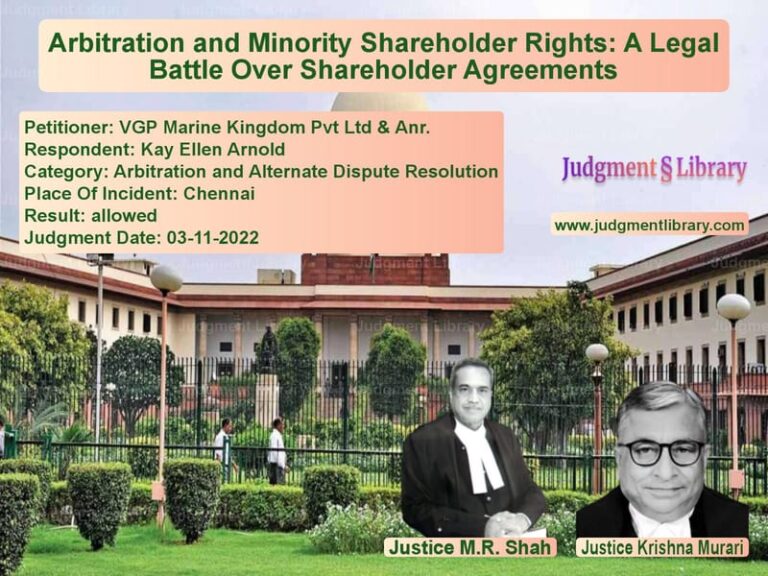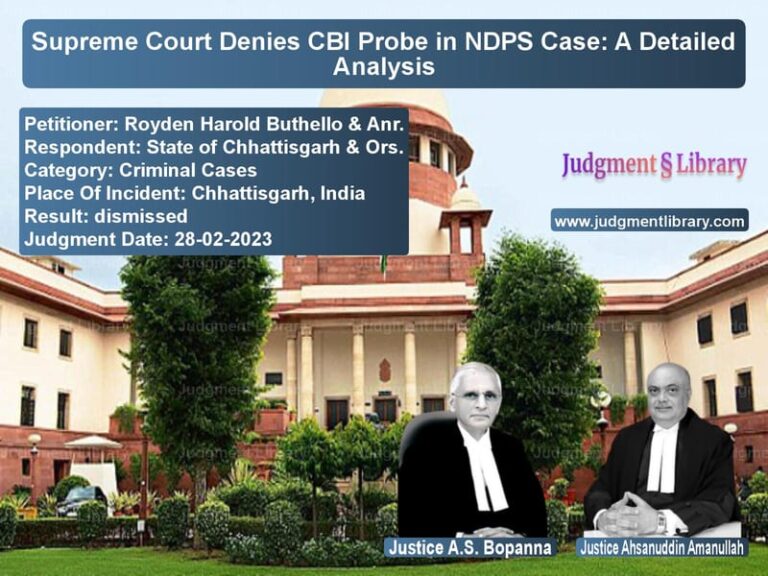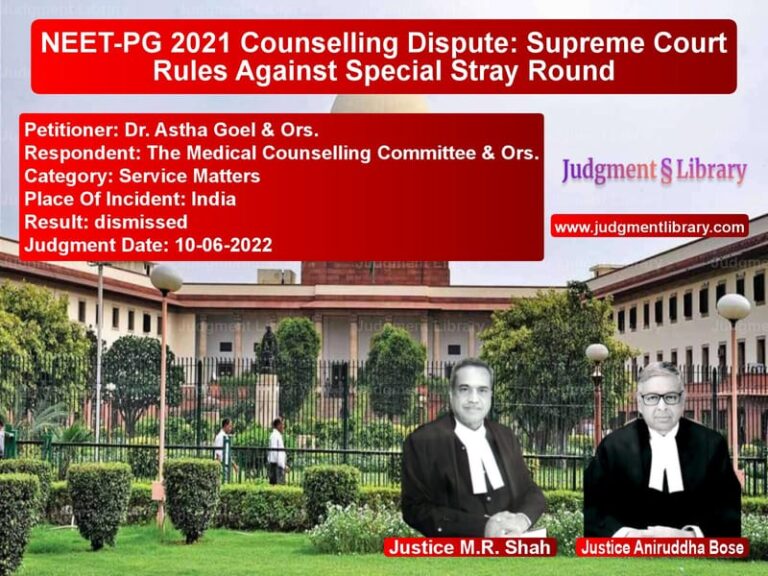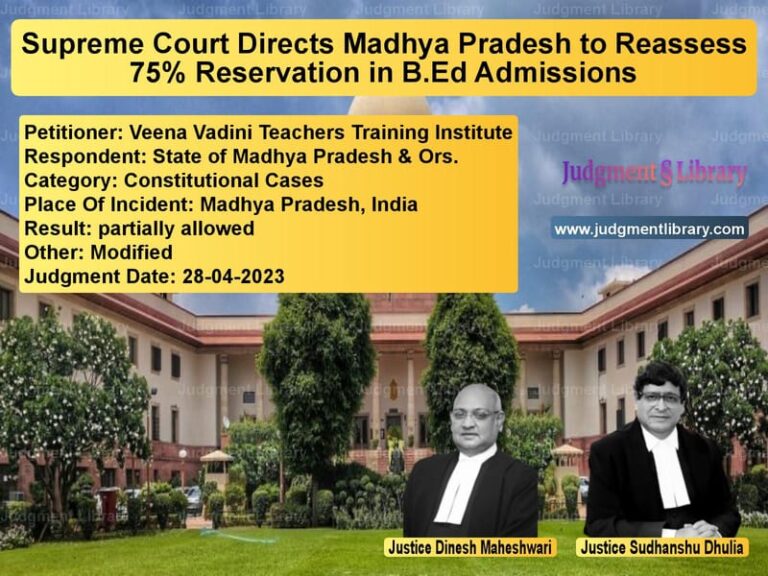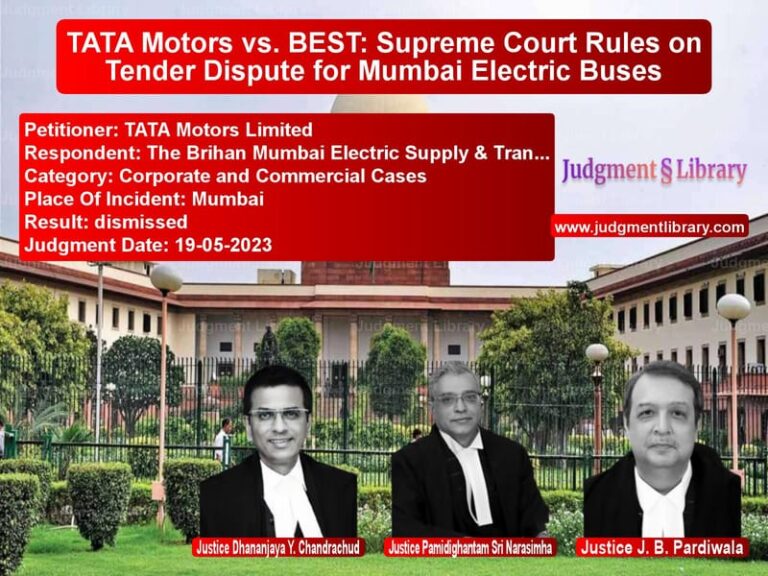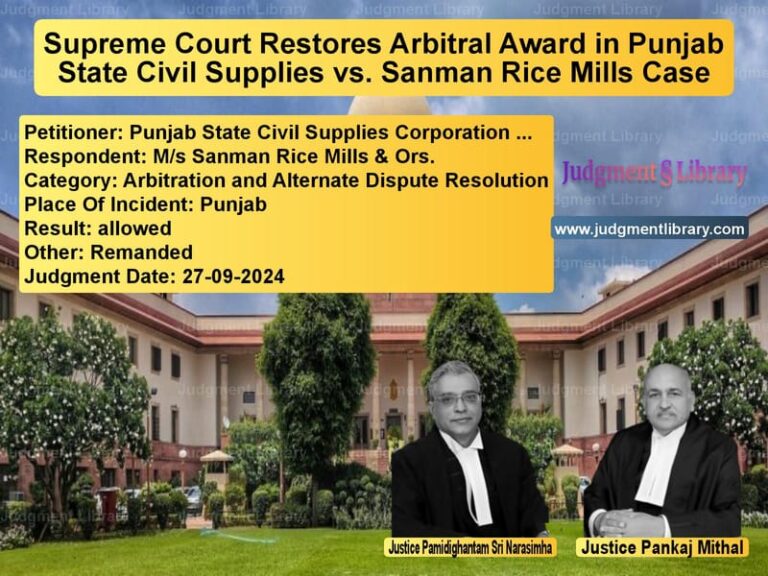Supreme Court Upholds Land Allotment for Ultratech Cement in Rajasthan
The Supreme Court ruled in favor of Ultratech Cement Ltd. in a long-standing land dispute with the State of Rajasthan. The case revolved around the company’s application for land allocation to set up a cement plant in Nawalgarh, Jhunjhunu, and the government’s objections citing environmental concerns.
Background of the Case
Ultratech Cement Ltd. planned to establish a cement plant with a capacity of 3 million tons per annum in Nawalgarh, Rajasthan. To execute this project, the company acquired 400 hectares of land through direct negotiations and sought additional land through government allotment.
In 2000-2001, Ultratech applied for mining leases for limestone, the primary raw material for cement production. Initially, the Rajasthan government granted a Letter of Intent (LOI) in 2002 but later canceled it in 2005 due to the absence of environmental clearance.
The cancellation led to multiple legal proceedings, and after various judicial interventions, the LOI was reinstated in 2010. Following this, the District Collector of Jhunjhunu approved the land allotment on February 23, 2012, subject to conditions, including obtaining environmental clearances and approvals from local authorities.
Legal Dispute and High Court Decision
One of the key conditions required Ultratech to secure permission from the High Court to use the land classified as ‘Johad’ (a waterbody). The company approached the Rajasthan High Court, arguing that the land in question was erroneously classified as a waterbody and was unsuitable for water retention.
The High Court ruled in favor of Ultratech, directing the state government to process the land allotment. The court relied on site inspection reports confirming that the land was not a natural water reservoir.
The Rajasthan government challenged this decision before the Supreme Court, arguing that the High Court had overlooked environmental concerns and the doctrine of public trust.
Arguments Before the Supreme Court
Petitioner’s Arguments (State of Rajasthan)
- The state government contended that land classified as ‘Johad’ should not be diverted for commercial purposes, citing environmental precedents.
- It argued that waterbodies play a crucial role in maintaining ecological balance and should not be converted into industrial zones.
- The government relied on past Supreme Court judgments emphasizing the protection of common land and waterbodies for public use.
Respondent’s Arguments (Ultratech Cement Ltd.)
- Ultratech argued that multiple government reports, including those from the District Collector and Tehsildar, confirmed that the land in question was not a functional waterbody.
- The company cited environmental impact assessments that showed no adverse ecological effects from the proposed project.
- It offered to develop an alternative water reservoir as compensation for the land used.
Supreme Court’s Observations
The Supreme Court analyzed the factual and legal aspects of the case, focusing on the classification of the disputed land. The Court noted:
“It is not disputed that the subject land neither falls in a catchment area nor contains any natural water reservoir. The findings of the Tehsildar and the District Collector confirm this fact.”
The Court further emphasized that environmental concerns must be balanced with economic development and industrial growth. The judgment stated:
“The principle of sustainable development requires a pragmatic approach where industrial needs and environmental protection coexist. Ultratech’s undertaking to develop an alternative waterbody ensures compliance with this principle.”
The Supreme Court also highlighted that:
- The state government had previously granted approvals for similar projects.
- The Gram Panchayat had no objections to the land being used for industrial purposes.
- The company had complied with all environmental clearance requirements.
Supreme Court’s Verdict
The Supreme Court upheld the High Court’s decision and directed the Rajasthan government to finalize the land allotment within four weeks. The judgment included the following directives:
- The Rajasthan government must process the land allotment without further delay.
- Ultratech Cement Ltd. must submit a fresh undertaking regarding compensatory environmental measures.
- Any additional approvals from local authorities must be expedited.
Impact of the Judgment
This ruling has significant implications for industrial land acquisition and environmental conservation:
- It reinforces the principle that economic development should align with environmental safeguards.
- It provides clarity on the legal status of land classification and its conversion for industrial use.
- It sets a precedent for balancing ecological concerns with infrastructure and industrial projects.
The decision is expected to facilitate smoother land acquisition processes for future industrial projects while ensuring compliance with environmental laws.
Petitioner Name: State of Rajasthan.Respondent Name: Ultratech Cement Ltd..Judgment By: Justice N.V. Ramana, Justice Hima Kohli, Justice C.T. Ravikumar.Place Of Incident: Nawalgarh, Rajasthan.Judgment Date: 26-08-2022.
Don’t miss out on the full details! Download the complete judgment in PDF format below and gain valuable insights instantly!
Download Judgment: state-of-rajasthan-vs-ultratech-cement-ltd-supreme-court-of-india-judgment-dated-26-08-2022.pdf
Directly Download Judgment: Directly download this Judgment
See all petitions in Property Disputes
See all petitions in Landlord-Tenant Disputes
See all petitions in Judgment by N.V. Ramana
See all petitions in Judgment by Hima Kohli
See all petitions in Judgment by C.T. Ravikumar
See all petitions in allowed
See all petitions in Remanded
See all petitions in supreme court of India judgments August 2022
See all petitions in 2022 judgments
See all posts in Civil Cases Category
See all allowed petitions in Civil Cases Category
See all Dismissed petitions in Civil Cases Category
See all partially allowed petitions in Civil Cases Category


